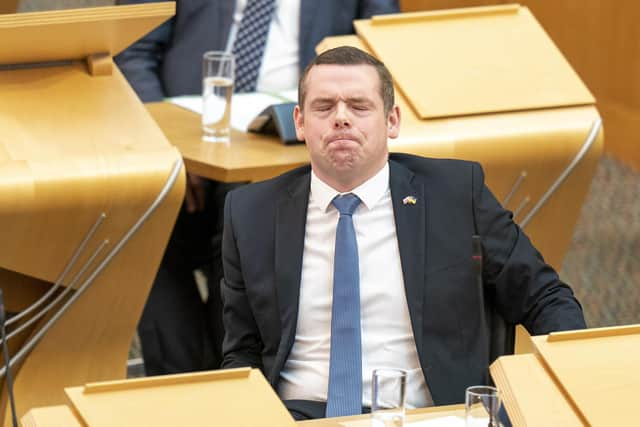Local elections 2022: Who will come out of the voting happiest?
This article contains affiliate links. We may earn a small commission on items purchased through this article, but that does not affect our editorial judgement.
The Scottish Conservative leader faced the brutal prospect of watching hard won gains across Scotland disappear into the hands of the Liberal Democrats and Labour, all while the SNP and Greens gained on their 2017 positions.
Tory sources blame Partygate and it is hard to disagree when 33 per cent of their voters said the Prime Minister should resign pre-polling day.
Advertisement
Hide AdAdvertisement
Hide AdSenior figures believe voters simply stayed at home or, if they voted, often switched to the Liberal Democrats in a replay of classic protest votes of the past.
But Mr Ross is facing questions of his own.
Most critically, his own MSP group is unhappy, with many questioning privately the wisdom of his U-turn on Boris Johnson and the quality of the advice around him.
The result stands in stark contrast to the party’s success in May last year where it held on to second and secured an increase in votes, and allies of the leader are quick to point out this is still the party’s second best local election in Scotland since devolution.
But the party has gone backwards and, in the process, has opened the door for Anas Sarwar’s Labour party.


Coming within a whisker of being the largest party in Glasgow will put a spring in the step of the Scottish Labour leadership and it is the first positive uptick for the party in years.
It is not a full return to form, however.
The party still only received just under 22 per cent of the vote share, just 2 per cent up on 2017 and the dramatic fall in the Tory vote has not automatically switched to the supposed second choice for unionist voters.
Instead, one of the major victors of this election, the Scottish Liberal Democrats, saw major gains across the country and came within a councillor of being the second largest group in Edinburgh from a starting point of fifth place.
Alex Cole-Hamilton, the leader, was unsurprisingly delighted with the outcome and pushing the Greens into fifth in terms of vote-share is an additional bonus.
Advertisement
Hide AdAdvertisement
Hide AdIt will take a general election to judge whether the Lib Dem revival has truly begun, however.
Meanwhile, the two pro-independence parties of government will both return home happy, if not delighted at their progress.
The Scottish Greens have gained seats in parts of the country they have never won in before and grew their core support in Glasgow and Edinburgh further.
It’s another step in the right direction, if not a significant breakthrough at a local level.
For the SNP, they will be quietly content at securing 34.1 per cent of the vote while staying the largest party on key councils such as Edinburgh, Glasgow and Aberdeen, and taking overall control of Dundee.
It is an improvement on both 2012 and 2017, but by no means a universal stamp of approval on the government’s approach to local councils.
As with the Holyrood elections, spare a thought for Alex Salmond and his failed political experiment, the Alba Party.
Twice in 12 months his party has been rejected at the ballot box.
Advertisement
Hide AdAdvertisement
Hide AdWhile he will retain attention as a former first minister, his party is now an irrelevance.
Want to hear more from The Scotsman's politics team? Check out the latest episode of our political podcast, The Steamie.
It's available wherever you get your podcasts, including Apple Podcasts and Spotify.
Comments
Want to join the conversation? Please or to comment on this article.
